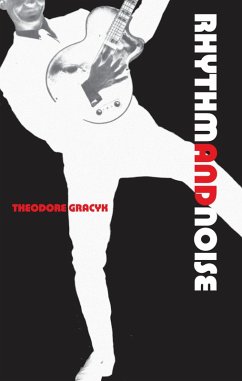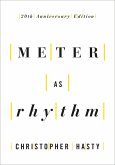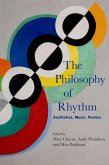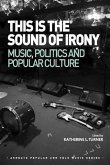You know it when you hear it, but can you say what it is? How you know? Why you either love or loathe it? What makes it original or derivative? To a music that tends to render its aficionados and detractors equally inarticulate, Theodore Gracyk brings a rare critical clarity. His book tells us once and for all what makes rock music rock. A happy marriage of aesthetic theory and the aesthetic practice that moved a generation, Rhythm and Noise is the only thorough-going account of rock as a distinct artistic medium rather than a species of popular culture.What's in a name? "e;Rock"e; or "e;Rock 'n' Roll?"e; Grayck argues that rock and roll is actually a performance style, one in a number of musical styles comprising rock. What distinguishes rock, Gracyk tells us, is how it is mediated by technology: The art is in the recording. The lesson is a heady one, entailing a tour through the history of rock music from Elvis Presley's first recordings in 1954 to Kurt Cobain's suicide in 1994. Gracyk takes us through key recordings, lets us hear what rock musicians and their critics have to say, shows us how other kinds of music compare, and gives us the philosophical background to make more than passing sense of the medium. His work takes up the common myths and stereotypes about rock, popular and academic, and focuses on the features of the music that electrify fans and consistently generate controversy. When Elvis came to town, did southern sheriffs say that rock was barbaric and addictive? Well so did Theodor Adorno, in his way, and Allan Bloom, in his, and Gracyk takes aim at this charge as it echoes through the era of recorded music. He looks at what rock has to do with romanticism and, even more, with commercialism. And he questions the orthodoxy of making grand distinctions between "e;serious"e; and "e;popular"e; art.Keenly attuned to the nuances of music and of all the ways that we can think about it, this exhilarating book tunes us in, as no other has, to the complex role of rock in American culture.
Dieser Download kann aus rechtlichen Gründen nur mit Rechnungsadresse in A, B, BG, CY, CZ, D, DK, EW, E, FIN, F, GR, HR, H, IRL, I, LT, L, LR, M, NL, PL, P, R, S, SLO, SK ausgeliefert werden.









